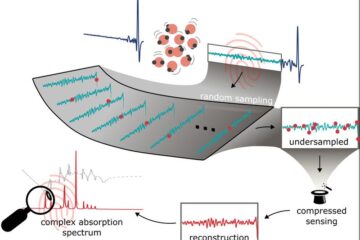Fish oil — helpful or harmful?

Fish oil supplements may help some cardiac patients while harming others, suggests a new review of evidence compiled by St. Michael’s Hospital and University of Toronto researchers.
In a systematic review of trials where patients with implantable cardioverter defibrillators used fish oil supplements, Dr. David Jenkins and Dr. Paul Dorian found significant differences among the trials, indicating fish oil may be beneficial to some patients while having a negative impact on others.
“Fish oils can have complex and varied effects on the heart,” says Jenkins, a U of T Professor of Medicine who runs the Clinical Nutrition and Risk Factor Modification Centre at St. Michael’s Hospital. “These effects include blocking cardiac ion channels, reducing fibrosis in response to mechanical stress, decreasing blood coagulation, and possibly altering immune function.”
There is evidence from multiple large-scale population (epidemiologic) studies and randomized controlled trials that intake of recommended amounts of DHA and EPA in the form of dietary fish or fish oil supplements can reduce the risk of death, heart attack and dangerous abnormal heart rhythms in people with known cardiovascular disease, as well as potentially slow hardening of the arteries and lower blood pressure slightly. But the evidence also shows high doses can have harmful effects, such as an increased risk of bleeding. Although benefits are proposed for alpha-linolenic acid, scientific evidence is less compelling and beneficial effects may be less pronounced.
The meta-analysis reveals that studies in different patient populations with different pathophysiologies and therapeutic regimens have all produced divergent results. However, more recent data suggests that particular caution should be exercised when analyzing data from certain subgroups, such as men with stable angina. The same may also be true for patients with implantable cardioverter defibrillators who have a history of ventricular tachycardia and who are not taking antiarrhythmic medications.
“Fish oils have promise as beneficial in cardiovascular disease but our work highlights our gaps in understanding and the need for more research,” adds Dorian, a cardiologist at St. Michael’s Hospital and U of T Professor of Medicine University of Toronto.
The review, which will appear in the January 15 edition of the Canadian Medical Association Journal, also indicates that further research and large randomized controlled trials are needed before long-chain omega-3 fatty acids are used in patients with heart failure and angina.
Media Contact
More Information:
http://www.utoronto.caAll latest news from the category: Health and Medicine
This subject area encompasses research and studies in the field of human medicine.
Among the wide-ranging list of topics covered here are anesthesiology, anatomy, surgery, human genetics, hygiene and environmental medicine, internal medicine, neurology, pharmacology, physiology, urology and dental medicine.
Newest articles

How evolution has optimised the magnetic sensor in birds
The magnetic sense of migratory birds is probably based on the protein cryptochrome 4, and a genetic study has now provided further support for this theory. A team of researchers…

Molecular Fingerprint Beyond the Nyquist Frequency
Ultrafast laser spectroscopy allows the ascertainment of dynamics over extremely short time scales, making it a very useful tool in many scientific and industrial applications. A major disadvantage is the…

High-energy-density aqueous battery based on halogen multi-electron transfer
Traditional non-aqueous lithium-ion batteries have a high energy density, but their safety is compromised due to the flammable organic electrolytes they utilize. Aqueous batteries use water as the solvent for…





















